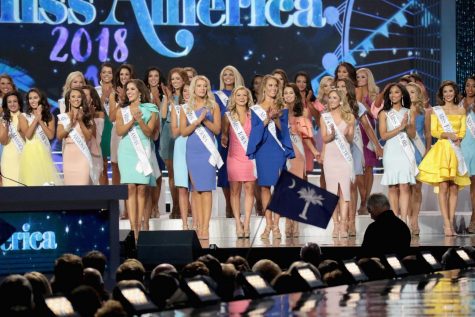UNF professor discusses women’s empowerment and Miss America 2.0
September 14, 2018

In the era of diversity, empowerment and progressive change, a circuit in which many American women have been placed on a pedestal for decades have made the historical and blazon statement that they are not taking a backseat in the movement to shatter the glass ceiling.
The Miss America Organization shocked the country when their newest chairwoman, Gretchen Carlson, announced “Miss America 2.0,” a sweeping change-of-face for one of the country’s most popular annual competitions. Miss America 2.0 eliminates the traditional swimsuit and formal-wear segments, replacing them with competitions that they believe to be more empowering.
“We are no longer judging candidates on their outward appearance, and we are no longer calling it a pageant,” Carlson said in an interview with Inside Edition. “It is much more important to look at somebody and talk about their goals and achievements in life, and how we can teach them leadership skills and really celebrate their talent”.
With a huge marketing campaign behind the change, and even a fun little video portraying a bikini being lit on fire, the organization wasted no time being shy about their message. A 2003 contestant, Nancy Redd, even chimed in with her take on the change,
“Time is up for the pedastaling of an individual based on looks. I recount my experience not to lambaste the Miss America pageant of yesteryear, but to showcase how far the organization has come” Redd tweeted.
With an estimated 1.3 million fewer viewers than last year, the question arose as to whether their impact was as great as intended. UNF Professor Jennifer Wesely, whose expertise is in gender inequality and justice, sat down with the Spinnaker to discuss her professional opinion on the subject.
“I kind of feel like it is what it is, and taking out the swimsuit competition is not changing the overall thrust of the event. You still have women who are being judged on their appearance despite the fact that there is no swimsuit competition,” Wesely said. “You are still talking about women who fit into a conventional attractiveness model, as opposed to a true diversity of people.”
Though she is not a fan of the concept in its entirety, she still believes pageants have presented great opportunities to women over the years, and that Chairwoman Carlson’s intentions were well-rounded, just not necessarily well-presented. Her definition of the positive message was based around the “social-capital” presented to women in this arena. However, she believes the way to social-capital should not be through means of a pageant.
“What we really need to be doing is giving women the opportunity to have equal pay for equal work, to eliminate sexual harassment in the workplace,” Weseley said. “Those are the changes that we need for women. Simply taking out a couple pieces of the Miss America pageant isn’t really empowering woman the way we need to empower them.”
Wesley’s viewpoint on women’s empowerment in mainstream media was parallel to her viewpoint on the pageant. Though the intention to represent women as powerful is great, she does not believe the use of people in advertising is the proper way to spread this message.
“All of these things are a step in the right direction, but at the same time, media is fed by large conglomerates that have interest in typically preserving the status quo, so they are not going to shake things up to the extent that they are going to lose money.”
—
For more information or news tips, or if you see an error in this story or have any compliments or concerns, contact [email protected].






















